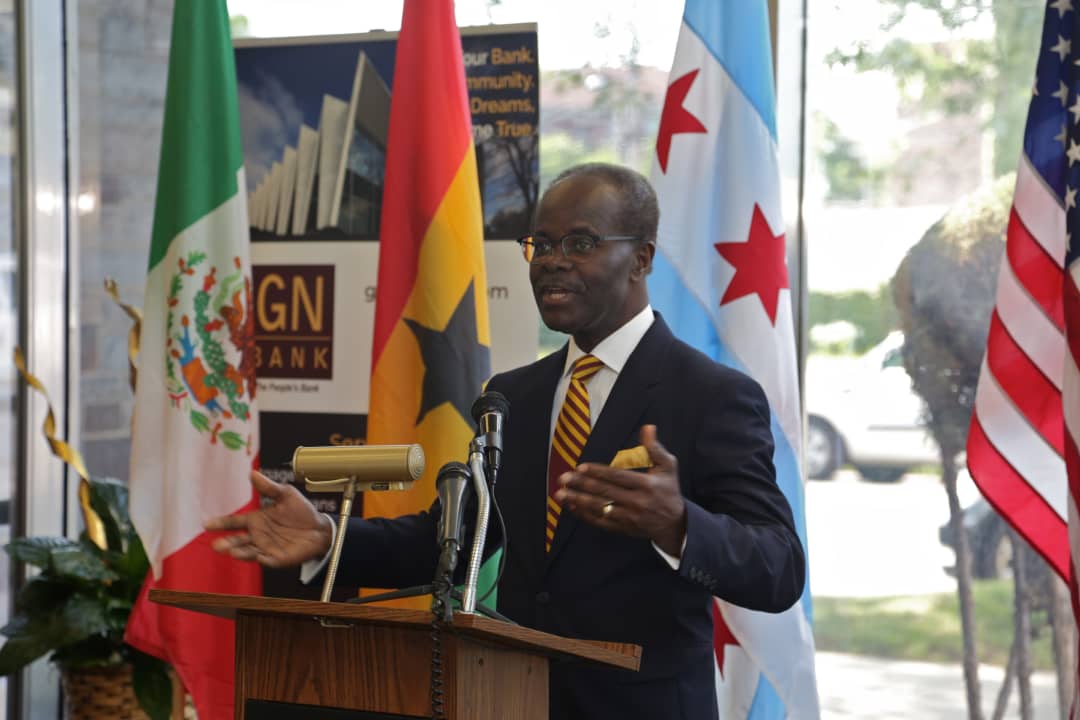Four years ago, a bank in the United States was on the verge of collapsing when a Ghanaian firm came to its rescue.
The ISF Bank, or Illinois Service Federal Savings and Loan Association, located in Chicago, Illinois, was founded in 1934 to cater to the capital and banking needs of families, local small businesses, faith-based institutions and nonprofit organizations in the community.
But the black-owned bank started experiencing difficulties during the economic downturn of 2008 and by 2016, it was in the danger of shutting down due to lack of capital.
This was when the Ghanaian firm Groupe Nduom stepped in. An entrepreneurial and enterprise building firm then operating out of West Africa and the UK, the firm donated as much as $9 million into the ISF Bank to revive its struggling operations.

The Ghanaian firm was eventually allowed to buy the ISF Bank, following the regulatory approval by the U.S. Office of the Comptroller of the Currency.
“This marks a new chapter in the life of the Bank, which will enable it to sustain the rigors of financial stress that have plagued many communities in Chicago and continue to provide much-needed banking services and access to credit.
“Given the current climate in our country, the Bank is needed more than ever to provide financial services and drive redevelopment in our market,” Norman J. Williams, who was then the immediate past Chairman and CEO of ISF, said in 2016.
Groupe Nduom, which then had over 3,000 workers across West Africa and the UK, had entities in the financial services, media, cross border trade, media industries, and tourism.
Company president and chairman Dr. Papa Kwesi Ndoum believed that the ISF Bank acquisition was a major step for Africans.
“In the Jewish community, they find a way to help each other, and they have moved on,” Ndoum said. “The Chinese start with little and move on, and the Koreans also come here and move on.
“So, we have this idea: What is it about African-Americans, Africans, specifically Ghanaians?…The African has talent, the African-American has talent, the Ghanaian has talent; the problem is a lack of opportunity.”

Nduom indicated that his company’s investment will “enable the Bank to build upon its legacy by providing a suite of innovative financial services and products to address its customers’ needs. This investment helps ensure that minority-focused banks continue to play a vital role in community economic development.”
Black-owned banks in the U.S. operated as a financial haven for African Americans during the Jim Crow era when black people found it difficult to gain economic growth.
In recent times, however, there has been a drop in the numbers of black-owned banks in the U.S. Between 1888 and 1934, there were over 130 Black-owned banks in the U.S., but there are only about 19 now.
Firms like Groupe Nduom from Ghana tried to change that when it bought the ISF Bank in 2016 and established a three-year turnaround plan.
By 2018, it had become officially known as GN Bank and stressed that it will focus on communities that have been overlooked by the major banks, especially African-American, African, the Caribbean and Latino communities.
A year after, in 2019, Groupe Nduom started going through some struggles.
It had then developed a banking brand which was known to have started as a savings and loans company in Ghana before going international.
But from 2018, Ghana’s central bank began a banking sector clean-up which led to panic withdrawals. This affected banks like the GN Bank and by 2019, it was closed down by the central bank for failing to meet the minimum capital of GHC400 million.
In spite of these difficulties, Nduom, in his 2020 New Year message, said he is optimistic that his firm will overcome the challenges.
“We are determined to leave behind the difficulties of 2019, and enter the new year, 2020, with bright new ideas, with renewed strength and with the support that we believe will come from many quarters, so that we can get back into place and deliver the kinds of services and produce the goods that have come to be associated with Groupe Nduom,” he said.
Nduom was born in Ghana and became a partner at Deloitte & Touche in Milwaukee.
He and his family later moved to Washington, D.C., and then back to Ghana in the early 1990s.










